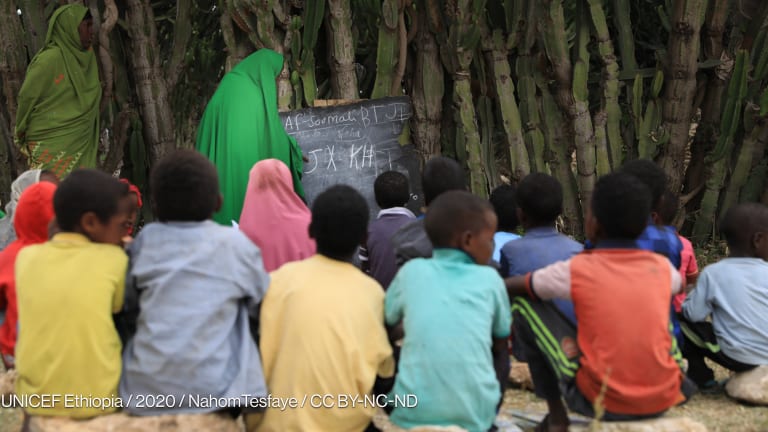
WASHINGTON — The U.S. Senate’s coronavirus supplemental funding bill unveiled Monday includes only about $4.4 billion for global COVID-19 relief efforts, far less than advocates had pushed to include.
Development experts have been pushing for about $20 billion in funding for the global response in this next — and potentially final — supplemental COVID-19 funding bill. In recent weeks, those advocates were hopeful that they would get significant funding, especially when a bipartisan group of 33 senators sent a letter to Senate Majority Leader Mitch McConnell and Minority Leader Chuck Schumer, saying they “strongly support significant U.S. investment in the international response.”
What the US Congress might do next in funding global COVID-19 response
Expecting the Senate to take up discussions about the next COVID-19 supplemental funding bill, advocates make a final push to get lawmakers to include global funding in the legislation.
The $1 trillion HEALS Act proposed by the Senate includes $1 billion for the International Disaster Assistance account; $3 billion for global health programs, including funding for Gavi, the Vaccine Alliance; $10 million for U.S. Agency for International Development operating expenses; and $425 million for State Department consular and border security programs.
Some advocates had been pushing for $4 billion in funding for The Global Fund to Fight AIDS, Tuberculosis and Malaria alone, but it received no funding in this bill. The organization has said it expects to run out of the $1 billion in COVID-19 funding that it was able to mobilize and put together at the end of July.
“America will never be safe from COVID-19 if the pandemic rages overseas, yet the Senate bill provides very limited funding for the global response, and zero funding for the Global Fund. If the final supplemental bill takes a similar approach there would be tragic consequences,” said Chris Collins, president and CEO of Friends of the Global Fight Against AIDS, Tuberculosis and Malaria, in a statement.
The House of Representatives’ latest COVID-19 supplemental funding bill — the $3 trillion HEROES Act, which passed in May — included no funding for the global response.
The House and Senate will now have to negotiate and try to find agreement between the HEROES Act and the HEALS Act, though many of the sticking points are expected to be about domestic implications of the bill. Advocates, meanwhile, are continuing to push for more global funding to be included in the final legislation.
Some unemployment benefits included in previous emergency legislation expire this week, and Congress typically takes an August recess, so there is pressure to conclude negotiations quickly, though it is unclear when exactly that will happen.









